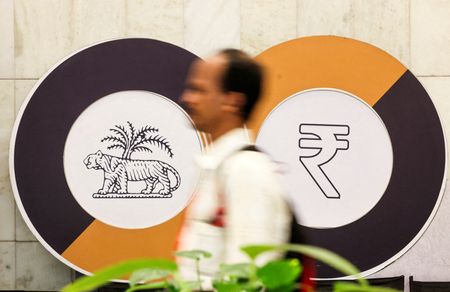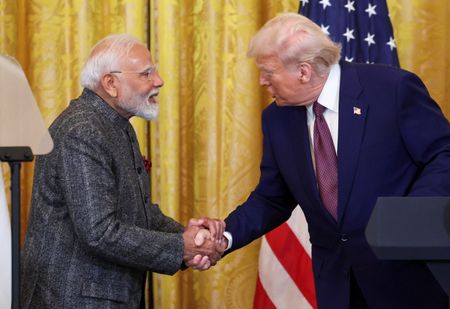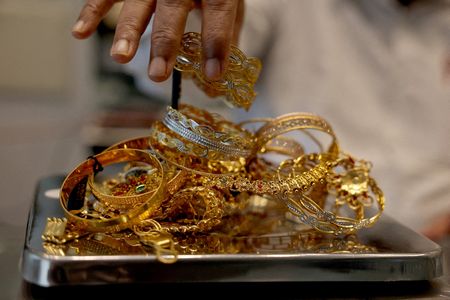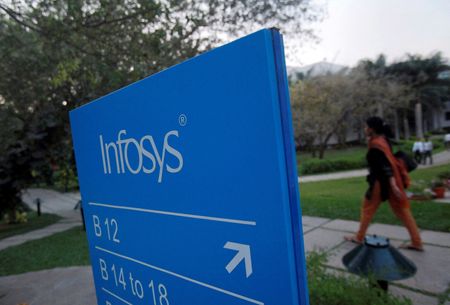By Jaspreet Kalra
MUMBAI (Reuters) -The Indian rupee touched a one-month high on Thursday, as firm central bank intervention in the previous session and nascent optimism above U.S.-India trade negotiations helped the local currency find its footing on the stronger side of the 88-handle.
The rupee rose to a peak of 87.70 in early trading before trimming gains to end the session at 87.82, up 0.3% on the day.
The local unit has climbed about 1% from its closing level on Tuesday as heavy-handed intervention by the central bank knocked speculative wagers against the currency off the board.
Signs of thaw in U.S.-India trade negotiations also helped sentiment.
Bankers estimate that the Reserve Bank of India sold up to $5 billion to shore up the rupee on Wednesday, sparking a positive shift in sentiment for the rupee in the currency options market.
During the stalemate near 88.80 over the last two weeks, some offshore market participants had bet on the rupee falling below 90 using options, but the intervention has sent a strong message, a senior trader at a foreign bank said.
While this is likely to spur a reduction of short INR positions in the near-term, over the medium-term, “we still think that some modest FX weakness is not a bad thing for India,” Michael Wan, senior currency analyst at MUFG, said in a note.
The firm will be inclined to “look for opportunities to go long USD/INR later depending on where the FX settle,” the note added.
Elsewhere, U.S. President Donald Trump said on Wednesday that Indian Prime Minister Narendra Modi has pledged to stop buying oil from Russia. Meanwhile, Indian officials on Thursday said discussions were ongoing with the United States on deepening energy co-operation between the two countries.
Traders reckon that a breakthrough in U.S.-India trade negotiations is likely to spark a rally in the rupee, even though it may prove to be transient.
Moves in broader FX markets were contained on Thursday with the dollar index flat at 98.6 as were most Asian currencies.
(Reporting by Jaspreet Kalra; Editing by Rashmi Aich, Eileen Soreng and Janane Venkatraman)










